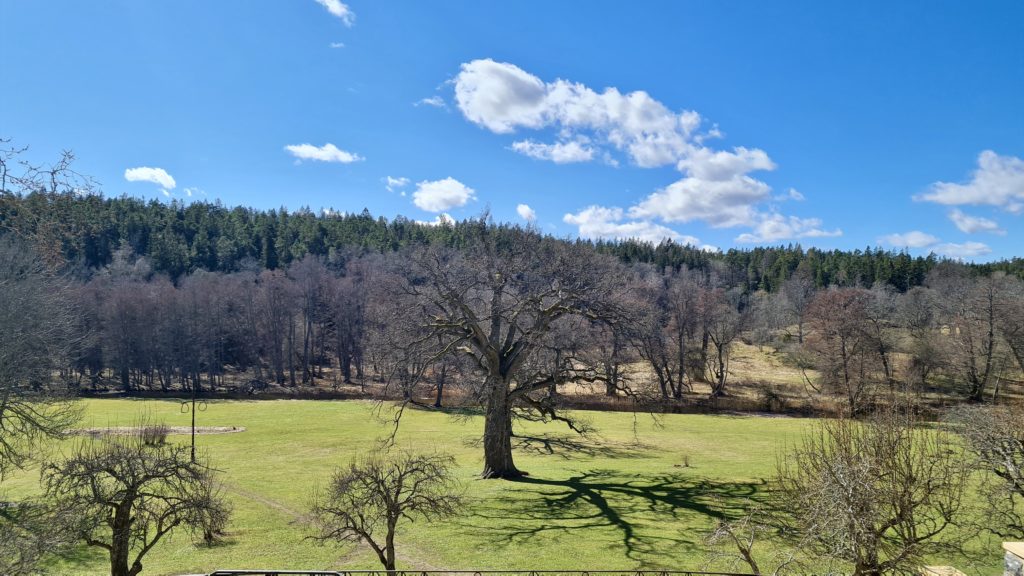Climate Change and the EU agricultural sector
By Ingemar Pongratz

Tyreso by Ingemar Pongratz
The agricultural sector represents a major source of economic activity in Europe and remains a key economic driver in the European economy. A study performed by the European Environmental Agency in 2015 shows that agriculture remains a major contributor towards changes in climate. In 2012, the agricultural sector represented 10% of the total European production of greenhouse gases (GHG).
This is a significant decline from 24% which was the contribution between 1990 and 2012. The decline is explained by more efficient use of fertilizers, reduced meat production and better manure management in Europe
However, the agricultural contribution towards climate change worldwide is increasing and is expected to continue to increase due to increasing food and feed demand.
In 2021, the European Commission presented the New EU strategy in Adaptation to Climate Change. The document highlights the pressing need to develop new strategies to produce food and to reduce GHG emission substantially. There is major concern in Europe regarding the effects of climate change, such as droughts, water scarcity, environmental degradation etc.
The EU has committed itself to become a climate neutral continent by 2050 and has present a large set of actions to achieve this goal. The EU highlights that all industrial sectors need to contribute towards the overall EU goals and that the agricultural sector is not an exception.
The EU proposes a number of activities to reduce GHG production and many (most) of these activities affect the agricultural sector. For example, the European Commission highlights the need to:
- Substantially improve the use of water in the agricultural sector.
Water will become scarcer in the future and the agricultural sector need to develop new strategies to produce food and feed with less water. The European Commission highlights the potential of vertical farming and use of droughts resistance crops to save water in the future.
- Soil protection
The EU Adaptation strategy highlights the need to protect agricultural soil in the future through better and smarter use of fertilizers.
- Certification and accounting mechanisms for carbon farming
Carbon farming is regarded as a major possibility to capture GHG that otherwise would be released into the atmosphere. This capture could be achieved by increasing the European forestry sector or by planting crops that capture CO2.
The European Commission plans to develop a number of mechanisms to reduce the impact on climate change from agriculture. Here, the Horizon Europe Research and Innovation Scheme will be a key provider of knowledge and tools to achieve the European impact on climate change.
Interestingly, the initial reaction from the European Agricultural sectors is rather positive. Climate Change and the EU agricultural sector are acknowledged by the industry. However, the sector claims that major changes in legislation are required to achieve the European Commission goals to reduce GHG emissions. The sector claims that the European Commission and the European member states need to revise their ban on GMO and allow certain practices that are currently banned in Europe.
European farmer associations like a COPA-COGECA argue that new breeding technologies are required to produce crops that are better suited to address the problem associated with GHG. Climate Change and the EU agricultural sector are acknowledged by ind
The legislative path to address the ban on GMO is rather long so alternative solutions need to be addressed. For example, more efficient fertilizers could be used that increase yield and reduce water in agriculture while at the same time protect and retain soil integrity.
In this area European researchers and SME have developed interesting alternatives to GMOs that should also be explored.
Ingemar Pongratz is a Life Science entrepreneur who established Fenix Scientific AB / Pongratz Consulting and Letavis AB. Through Letavis AB we have developed new products to support agriculture to increase their yield while reducing negative impact on the climate.
If you are interested to know more about our products, please contact us

View of Alta lake by Ingemar Pongratz
